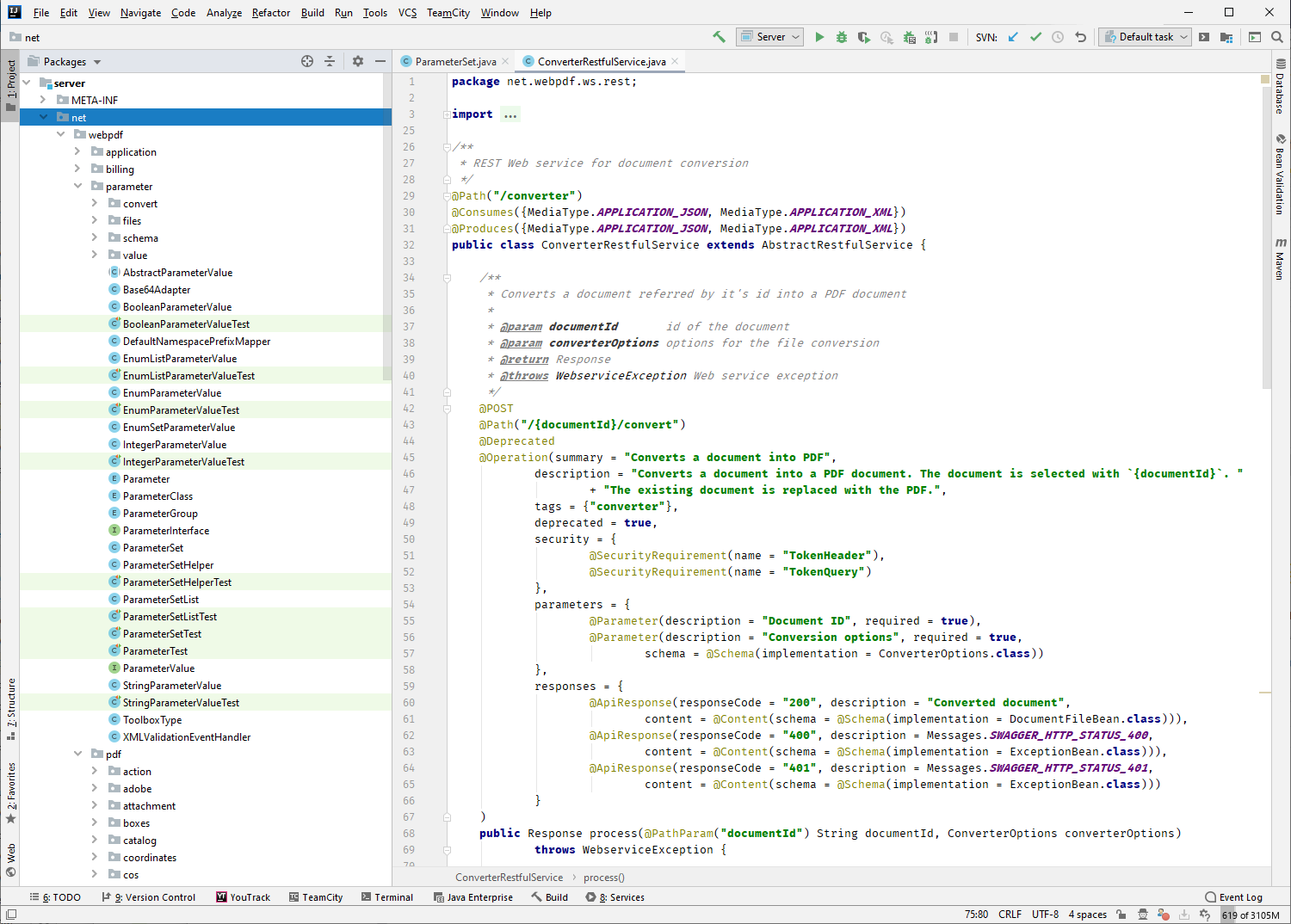
PDF web services for software developers
Web services for software developers let you integrate PDF functionalities in any application and use them in a variety of programming languages.
webPDF comes with a flexible application programming interface (API) that allows developers to quickly and easily incorporate the server's PDF functions into your company's existing applications. The standardized interface based on SOAP or REST web services lets you seamlessly integrate the server-side PDF services within your business workflows.
Integration via different programming languages
Both third-party software and our own developments - whether as a classic application in C, C++. C# or Delphi or as a web application in Java, PHP or Typescript - can be extended by the webPDF functionality. The connectivity of the open software architecture ensures flexibility of use. By implementing the webPDF engine on the server side, developers can make the PDF tools versatile, creative and effective:
- An extensive application of webPDF for developers is the implementation of web services using programming languages such as Java, C, C++, C#, .NET, PHP or Delphi.
- The services can be easily integrated into enterprise applications such as SAP®, IBM® Domino, Microsoft® Exchange or SharePoint etc.
- Content Management Systems (CMS) can also be extended with the functionality of the webPDF engine.
- Various application possibilities can be realized comfortably within shop systems.
Technical specifications
The connectivity and use of the web services is described in detail at the webPDF Developer Hub. The integration works through SOAP or REST web services. Under "Get started" you will get a first insight into the webPDF integration and use.
The SOAP web services of webPDF are implemented as JAX-WS (Java API for XML - Web Services). The binary data of the web services are transferred as SOAP MTOM (Message Transmission Optimization Mechanism).
The REST web services are provided via URI endpoints and addressed by means of the HTTP protocol with the methods GET, POST, PUT and DELETE. Data is exchanged as JSON or XML data structures at the interface. Binary data for processing is transferred and managed between client and server as part of the API.
The webPDF server is implemented as a J2EE application, which runs on an "embedded" Apache Tomcat server. An OpenJDK is used as basis for the server. webPDF is available as 64bit version for Windows (server) and Linux. In addition, webPDF can be used on container platforms such as Docker or Kubernetes. all information can be found on the "Technical requirements" page.
webPDF comes with a Software Development Kit (SDK) that allows developers to not only use a parameter control to incorporate document processing within your software applications' automated processes, but do the perfect implementation as well.